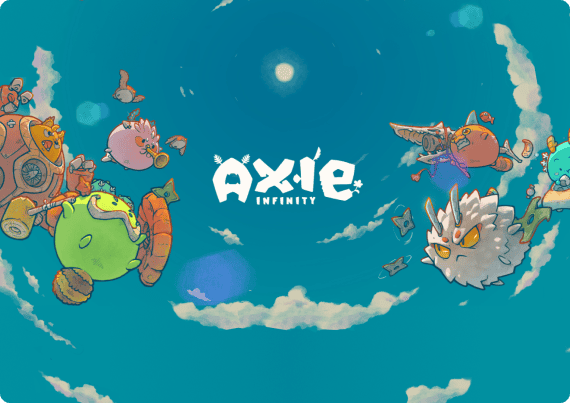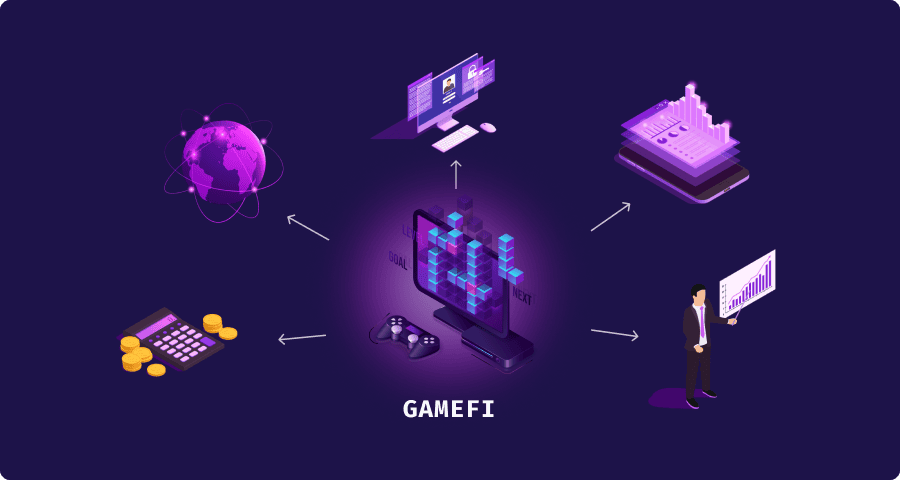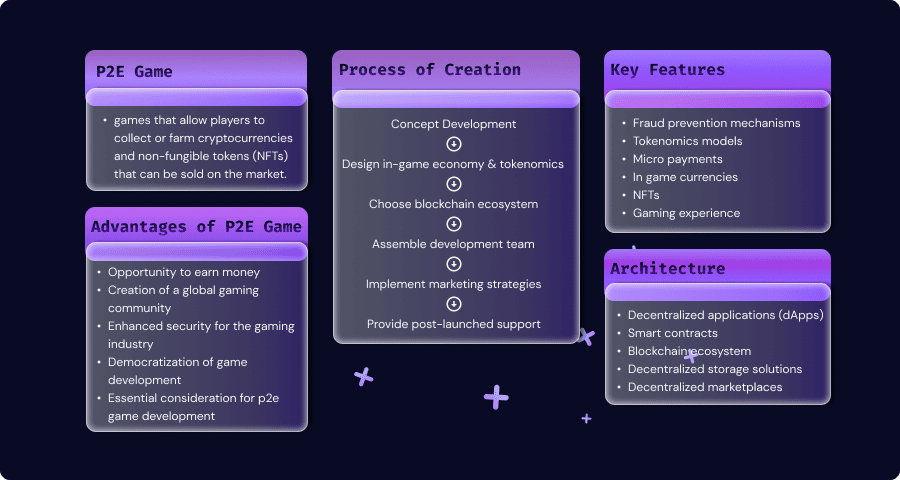
Play-to-Earn (P2E) games have taken the gaming industry by storm, offering players and developers alike a groundbreaking opportunity to earn real-world rewards using blockchain technology. With the market projected to reach billions of dollars annually, P2E games are on the cusp of transforming the gaming landscape. In this comprehensive guide, we explore the mechanics, advantages, and essential considerations for developing successful P2E games.
What Are P2E Games and How Do They Work?
P2E games are a unique fusion of gaming and blockchain technology, allowing players to earn rewards in the form of cryptocurrencies and non-fungible tokens (NFTs) by participating in in-game activities. By leveraging blockchain's transparency, security, and decentralization, P2E games empower players to own and manage their in-game assets securely. These games have gained immense popularity as they enable players to monetize their gaming skills and time.


Creating a P2E Game
Developing a successful P2E game involves a meticulous process that includes concept development, designing the in-game economy and tokenomics, choosing the appropriate blockchain ecosystem, assembling the right development team, implementing effective marketing strategies, and providing post-launch support.

The Main Advantages of Play-to-Earn Games
Opportunity to Earn Money
P2E games offer players the potential to earn real-world value by completing in-game tasks and acquiring valuable digital assets that can be traded or sold.
Creation of a Global Gaming Community
P2E games bring players from around the world together, fostering collaboration, competition, and asset trading within vibrant gaming ecosystems.
Enhanced Security for the Gaming Industry
Blockchain technology ensures a higher level of security and transparency, protecting in-game assets from fraud and providing players with a trustworthy environment.
Democratization of Game Development
P2E games have leveled the playing field, enabling smaller developers to create innovative games that can compete with established giants, resulting in a more diverse gaming landscape.
Essential Considerations for P2E Game Development
Developing a successful P2E game requires a sustainable and scalable business model, well-designed tokenomics, selecting the right blockchain platform, and striking a balance between engaging gameplay and profitability.

Key Features of P2E Games
P2E games incorporate robust fraud prevention mechanisms, well-designed tokenomics models, support for micro payments, in-game currencies, and player-owned assets represented as NFTs, fostering an immersive and profitable gaming experience.
P2E Game Architecture
A typical P2E game architecture includes decentralized applications (dApps), smart contracts, the chosen blockchain ecosystem, decentralized storage solutions, and decentralized marketplaces for trading in-game assets.
The P2E Game Development Team

Building a successful P2E game requires a diverse team of professionals, including game designers, tokenomics specialists, smart contract developers, back-end developers, front-end developers, and UX/UI designers.
“Alchemis as Your Reliable P2E Game Development Partner:
With expertise in both game and blockchain development, Alchemis is the perfect partner to bring your P2E game vision to life. Our proven track record, end-to-end development services, transparent collaboration, and competitive pricing ensure a successful and engaging gaming experience for your players.”
P2E games are on the verge of revolutionizing the gaming industry, providing players with unprecedented opportunities to earn real-world value and offering developers a chance to create innovative and profitable games. With the expertise of Alchemis, you can unlock the full potential of the P2E gaming market and make your mark in this exciting and rapidly growing industry.
